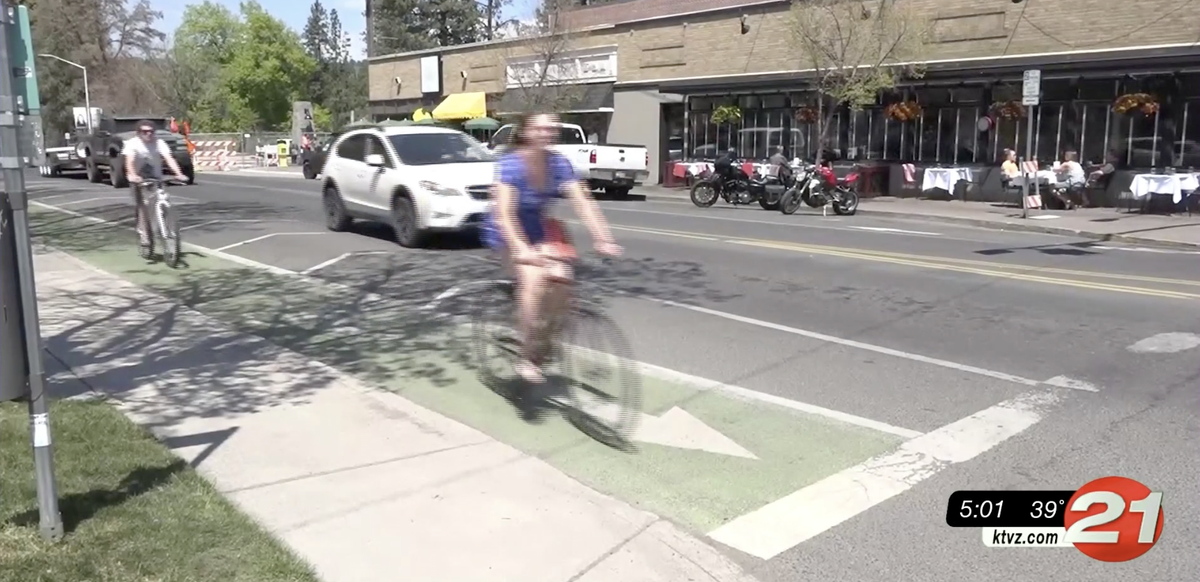Oregon cyclists ‘stop as yield’ rule change begins Jan. 1

Fourth state to enact laws recognizing effort needed to stop, start a bike
(Update: Adding reaction, background, video)
BEND, Ore. (KTVZ) -- On Jan. 1, new rules go into effect in Oregon that will allow bicyclists to yield at stop signs or flashing red beacons, instead of stopping completely, under certain conditions, city of Bend officials said Wednesday. Cyclists must still completely stop at a solid red traffic signal, they noted.
The new rules were created in part due to the physical effort required to stop and start a bicycle. Oregon, Idaho, Delaware and Arkansas have enacted laws recognizing this difference and specifying the conditions under which a cyclist may slow and yield, rather than come to a complete stop.
The new Oregon law requires that cyclists approaching a stop sign or flashing red light slow to a reasonable speed, yield to anyone already in the intersection, and not approach others in the intersection so closely it would create a hazard.
People riding bicycles still must stop for pedestrians in crosswalks, make every effort to avoid an accident, and follow the directions of a police officer or highway flagger.
The full details of the new law are found in Oregon Senate Bill 998, enacted in August. It updates Oregon Revised Statute 811.260 and 811.265. Violations to the rule are considered improper entry to an intersection - a Class D traffic violation subject to fines of $115, or $225 if in a work zone or school zone, the city noted.
It’s known to many as the “Idaho Stop,” as that state was the first to allow it, back in 1982. According to a study by UC-Berkeley, it reduced bike crashes by 14 percent.
"The voice amongst the community is it certainly makes it safer to be commuting around town,” said Janet Nelson Shofstall, sales manager at Hutch’s Bicycles in Bend.
“It also puts the ownership of the cyclist's safety on their” shoulders, she added. “You know, the beauty of being a cyclist is that your peripheral vision is wide and all-encompassing, and that allows you to really, really be able to scan your environment around you, and be safe by doing so, in a careful, safe manner."